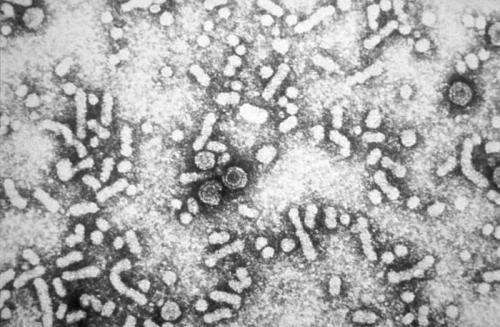New treatment principle for chronic hepatitis B and D infections

A new immunological treatment against hepatitis B and D viruses, both of which can cause liver cancer, shows promising results in animal models. Results from the treatment, which is being developed by researchers at Karolinska Institutet, have been published in the journal Gut.
Chronic infections of the hepatitis B virus (HBV) and hepatitis D virus (HDV) are major causes of severe liver damage and liver cancer.
A vaccine against hepatitis B exists, but over 250 million people currently have chronic infections. The available treatment rarely leads to the complete disappearance of the infection, which means that the risk of liver damage remains. Current treatment for chronic hepatitis D infection only cures about a quarter of patients.
A lasting treatment response
That is why researchers at Karolinska Institutet are developing a new type of treatment that will hopefully provide a lasting treatment response against both viruses.
The treatment consists of two components designed to affect the immune system in different ways. First, a DNA-based vaccine is administered that activates the production of neutralizing antibodies and T-cells against both viruses. Then, repeated doses of a protein-based vaccine are given to reinforce the activation of the immune system.
The now published study shows that the treatment can protect cultured cells against HBV and HDV infection. When the treatment was given to mice carrying parts of the hepatitis B and D virus, which resembles a chronic HBV infection, the animals produced the desired antibodies and T-cells at high levels.
Furthermore, antibodies from treated mice were able to protect mice carrying human liver cells against simultaneous infection with HBV and HDV. In addition, these antibodies were able to protect mice with chronic HBV infection against HDV infection. This is of particular importance because patients with chronic HBV infection are at risk of serious illness if infected with HDV.
Final safety studies
"These are promising results," says Matti Sällberg, professor at the Department of Laboratory Medicine at Karolinska Institutet and one of the study's two lead authors. "The study shows this is a viable route and encourages us to continue developing this treatment for use in humans. We are now optimizing the protein-based part to enable large-scale production to pharmaceutical standards, and then doing the final safety studies before we can apply for our first study with human subjects."
The treatment was developed at the Department of Laboratory Medicine at Karolinska Institutet in Sweden. The tests in cell culture were done in collaboration with Heidelberg University in Germany and the experiments in mice carrying human liver cells were done in collaboration with Ghent University in Belgium.
More information: Rani Burm et al, Novel prime-boost immune-based therapy inhibiting both hepatitis B and D virus infections, Gut (2022). DOI: 10.1136/gutjnl-2022-327216




















